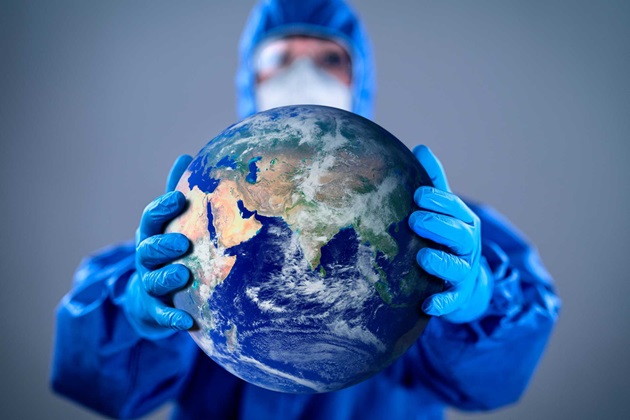With the focus on COVID-19, it’s crucial we don’t leave climate change on the backburner. Student Kendal Moran writes about the vital role nurses of the future have to play in the fight for our world
I have recently been thinking a lot about sustainability, climate change and nursing and the connections between them – spurred on by writing about my top five podcasts for RCN Students: “Audio for the mind and soul”.
My final podcast recommendation wasn’t in the field of nursing, health or wellbeing like the others on my list, but about climate change. At the time I said it was the wild card as it wasn’t directly related to nursing, however, the more I think about the topics, the more I am sure that they are intrinsically linked.
Our engagement with this topic is paramount
There is now no denying that human activity is changing the planet’s biosphere, bringing disruption to planetary health through climate change, air pollution, ocean acidification, and deforestation. This is already affecting, and will continue to affect, our patients’ health and wellbeing to a greater degree year on year. Be this through air pollution adversely affecting pulmonary conditions, resource scarcity leading to malnutrition, or the fear and anxiety provoked by an uncertain future affecting mental health.
This list is not exhaustive – the natural world and our climate affects our physical and mental health in a myriad of ways as I am sure your public health lecturers have repeatedly told you. Indeed, the World Health Organization (WHO) has described climate change as the defining health challenge of our time.
Never too late
Unless drastic measures are taken, climate change will fundamentally alter the world in which future humans will live. However, it is not too late – we can make individual and organisational changes to our everyday lives to create a beautiful green future for everyone.
Understanding this, RCN Congress 2019 voted in favour of an emergency resolution to acknowledge the climate emergency and lobby health care providers to develop policies and strategies that are environmentally sustainable.
Since then, work has been done to make the RCN itself more sustainable, build relationships with external organisations like the UK Health Alliance on Climate Change, and start initiatives to improve the sustainability of nursing practice with campaigns like Glove Awareness Week. The RCN Students Committee has also resolved to become more involved in work in this area.
Nurses have a duty to protect and promote health in the face of these threats
But, should this be a concern for nurses on an individual level? I would argue yes. Nurses have a duty to protect and promote health in the face of these threats and have a unique and vital role to play. As students the issue is even more vital – as the future of the workforce we will see and feel the cumulative effects of climate change on population health as it worsens. Our engagement with this topic is therefore paramount.
It can be difficult to know what you can do to help such a huge issue on an individual level. Where to start, you ask? Start by getting informed, spreading the word, and making small changes. Even the smallest ones can have great impact.
Healthy recovery
There is of course currently another threat to global health: COVID-19. This is a serious threat and, although it distracts us from the climate conversation, it also provides an opportunity to make changes to our everyday lives which will help us avert the climate crisis. This can be achieved through something which has been described by WHO as the “healthy recovery”. Find out more on the WHO website and search #healthyrecovery.
At the end of each episode of the podcast that galvanised my writing on this, the hosts ask their guests: “Are you mostly outraged or optimistic about the climate crisis?”. Before writing these words I was mostly outraged – why don’t people care as much as I do? However, after researching the work being done in this area, noting the international attention it has received in recent years, and understanding that we can make a difference on an individual level, I am leaning towards optimism.
Kendal's recommendations
- For someone just starting on their climate change journey and eager to know how they can make changes in the short, medium and long term: The Future We Choose by Christiana Figueres and Tom Rivett-Carnac
- For a more intense read about the psychology of the denial of climate change: This Changes Everything: Capitalism vs. The Climate by Naomi Klein
- For those interested in the idea of a healthy recovery from COVID-19 (from a climate perspective)
- For those keen to read more on how nurses can adopt sustainable practices
Kendal is the Student Member of the RCN Professional Committee.
Why sustainability matters
Read about why sustainability matters in health care, and what the RCN is doing.








